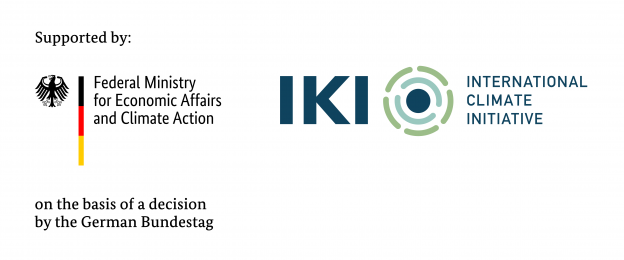Integrated Urban Climate Action for Low-Carbon & Resilient Cities (Urban-Act)
The Asia-Pacific region is undergoing rapid urbanization, with a projected population of over three billion people living in cities by 2050. This growth presents substantial challenges in providing sustainable infrastructure and services to meet increasing demand. Urban areas are responsible for approximately 75% of greenhouse gas emissions, and many cities in Asia are already facing severe impacts from climate change, posing risks to the population, environment, and local economy.
To address the challenge of climate change, the Urban-Act project is being implemented in five countries in the Asia-Pacific region: China, India, Indonesia, the Philippines, and Thailand. The overarching objective of this project is to improve the enabling conditions for planning and implementing evidence-based and inclusive urban climate actions in these countries, in alignment with the Sustainable Development Goals (SDGs) and Nationally Determined Contributions (NDCs) of the United Nations.
In China, the project focuses on several key areas. Firstly, it aims to develop an integrated spatial planning, monitoring and assessment system that considers the impact of climate change on territorial and spatial planning. This comprehensive approach will enable better decision-making and resource allocation for low-carbon and resilient urban development. Additionally, the project seeks to enhance cross-sectoral and multi-level coordination between different departments at the city level and responsible ministries at the national level. This coordinated approach will ensure effective implementation of climate actions and policies. Furthermore, the project aims to scale up development experience and successful examples from China to the other partner countries of Urban-Act in the Asia-Pacific region. By sharing experiences and successful strategies, the project seeks to accelerate progress in urban climate action across the region, fostering collaboration and collective learning.
4.5 years

What we work on
-

Promoting institutional development of territorial and spatial planning with addressing climate change in urban areas
The project plans to support Chinese partners in revising and improving policy instruments to effectively incorporate climate change aspects into territorial and spatial planning. This involves promoting political dialogues, integrating policy analysis, research studies and recommendations for policy revisions. -

Supporting sustainable territorial and spatial planning development in cities with addressing climate change
The project plans to collaborate with pilot cities in China, such as Xiamen, Jiaxing, and Xi’an, to integrate climate change considerations into their own territorial and spatial planning processes. This approach is tailored to local development priorities and needs, involving research studies, technical workshops, and the development of updated tools and technical guidance. The project also provides trainings to enhance the capacity of urban practitioners in implementing territorial spatial and urban planning responding to climate change. -

Improve to facilitating project identification and leveraging finance for urban areas
The project plans to assist Chinese cities, such as Xiamen, Jiaxing, and Xi’an, in identifying sustainable investment possibilities for their climate-sensitive urban development plans. Workshops and trainings are conducted to facilitate the identification of suitable financing options and the development of robust project proposals. -

Enhancing capacity development, knowledge transfer, networks and partnerships
The project places significant emphasis on capacity development, knowledge transfer, and the establishment of networks. These aspects are crucial for ensuring the successful implementation of climate action strategies and fostering collaboration among urban practitioners in China and other countries within the Asia-Pacific region. Through interactive platforms, such as international and domestic technical expertise workshops, conferences and discussions, and delegation exchanges, the project aims to enhance expertise, facilitate the exchange of valuable insights, and promote the scaling up of good practices.






